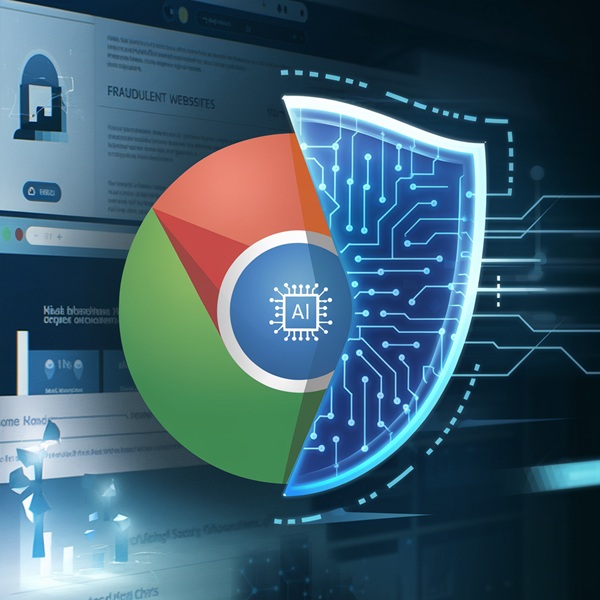A recent data breach at Muah.ai, a website offering “uncensored” AI-powered chatbots for companionship and sexual conversations, has exposed a large database of user interactions. The incident, first reported by 404 Media, raises significant privacy concerns and ethical questions about the use of AI technology, particularly in relation to illegal and harmful content.
Key Points of the Breach
- A hacker gained access to Muah.ai’s database, citing curiosity and poor security measures he noticed while surfing the site.
- The stolen data includes user prompts, many of which reveal sexual fantasies and preferences.
- User email addresses, often containing real names, were linked to these prompts.
- A lot of prompts reportedly contained disturbing content related to minors.
- According to haveibeenpwned, the Muah.ai breach affected approximately 1.9 million email addresses.
Expert Analysis: Troy Hunt’s Insights
Troy Hunt, the creator of haveibeenpwned, provided a detailed analysis of the breach on X, highlighting its severity:
“As if entering prompts like this wasn’t bad / stupid enough, many sit alongside email addresses that are clearly tied to IRL identities. I easily found people on LinkedIn who had created requests for CSAM images and right now, those people should be shitting themselves.”
Hunt emphasized the real-world implications of the breach:
“Next, there’s the assertion that people use disposable email addresses for things like this not linked to their real identities. Sometimes, yes. Most times, no. We sent 8k emails today to individuals and domain owners, and these are real addresses the owners are monitoring.”
He provided an example of how easily identifiable some users were:
“That’s a firstname.lastname Gmail address. Drop it into Outlook and it automatically matches the owner. It has his name, his job title, the company he works for and his professional photo, all matched to that AI prompt.”

Example prompt by a Muah.ai user. Source

LinkedIn profile of the user. Source
Legal and Ethical Implications
The breach raises serious questions about the legal ramifications of creating certain types of AI-generated content. Hunt noted that he had contacted law enforcement due to the nature of some prompts:
“This is one of those rare breaches that has concerned me to the extent that I felt it necessary to flag with friends in law enforcement. To quote the person that sent me the breach: ‘If you grep through it there’s an insane amount of pedophiles’.”
This development opens up discussions about whether prompts requesting illegal content could be considered as intent to commit a crime.
Platform Claims vs. Reality
Muah.ai advertises itself as a platform for “uncensored” AI interactions while claiming to maintain user privacy:
- The site promises that “Everything inside Muah AI is encrypted and private.”
- It claims to have moderation staff to remove inappropriate content.
However, the breach has called these claims into question:
- The ease with which the hacker accessed the database suggests inadequate security measures.
- Despite claims of moderation, reports indicate that some extremely inappropriate content remained accessible.
Related Incidents and Emerging Trends
The Muah.ai breach is not an isolated incident but part of a disturbing trend in the misuse of AI technology. A recent story exposed a similar case:
A network of websites claiming to use artificial intelligence to generate nude images from regular photos was found to be a sophisticated malware operation. Cybersecurity firm Silent Push revealed that the operation was run by Fin7, a notorious Russian cybercrime group. The websites lured users with promises of AI-generated nude images, only to infect their devices with malware.
This incident, along with the Muah.ai breach, highlights a continuous trend of bad actors attempting to exploit the allure of AI for illicit purposes:
- Exploitation of AI Hype: Cybercriminals are capitalizing on the public fascination with AI capabilities to create convincing scams.
- Dual Threats: These incidents pose both cybersecurity risks (malware, data theft) and ethical concerns (non-consensual image creation, privacy violations).
- Targeting Vulnerable Users: Both cases show how malicious actors prey on individuals seeking to engage in unethical or illegal activities, exploiting their evil desires.
Broader Implications for AI and Society
- Trust in New Technologies: This incident serves as a stark reminder of the risks associated with emerging technologies, especially those handling sensitive user data.
- AI and Illicit Content: The breach highlights the complex ethical issues surrounding the use of AI to simulate illegal or harmful acts. While no real person is directly harmed in AI simulations, there are concerns about encouraging and normalizing dangerous fantasies.
- More Prompt Leaks: As AI becomes more prevalent, the risk of prompt leaks exposing users’ private thoughts and fantasies increases, potentially leading to serious personal and professional consequences.
- Security vs. Innovation: The incident emphasizes the tension between rapid technological advancement and adequate security measures, particularly in startup environments.
- Ethical Use of AI: These incidents further stresses the critical need for ethical guidelines in AI development and use, especially in areas that could potentially infringe on individual rights or promote harmful behavior.
Recommendations and Conclusion
- Be highly skeptical of privacy claims made by platforms.
- Avoid using personal email addresses or any identifiable information for sign-ups, especially on platforms dealing with sensitive content. Use temporary email services like temp mail instead.
- Assume that any information shared online, even on “private” platforms, carries a significant risk of exposure.
As AI technology continues to advance, the Muah.ai breach serves as a critical wake-up call. It highlights the urgent need for:
- Enhanced security measures in AI platforms
- Clearer ethical guidelines for AI development and use
- Improved user awareness about digital privacy risks
- Potential new regulations to address the unique challenges posed by AI technologies





